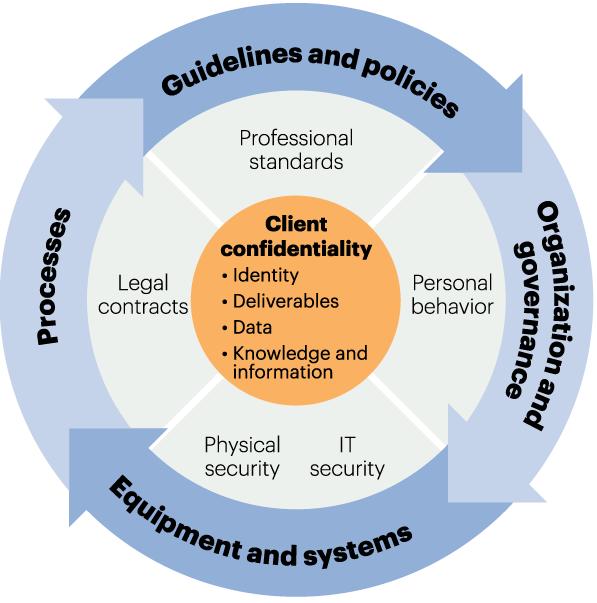Data Scientists Must Prioritize Client Confidentiality


Many organizations are reluctant to create data science teams (internally or externally) because of information confidentiality and privacy concerns. It is dangerous to open the kimono to competition - disclosing high-value information about inner workings of the firm may cause significant damage.
There is real fear of exposing valuable confidential information to data scientists who may leave the firm and share key knowledge with competitors. Moreover, externally hired data scientists could potentially share critical information with their other clients who may be direct or indirect competitors.
One solution is hiring only data scientists who are governed by the Data Science Code of Professional Conduct and are required to maintain strict client confidentiality.
Rule 5 of the Data Science Association Code of Professional Conduct includes the following confidentiality provision:
Rule 5 - Confidential Information
(a) Confidential information is information that the data scientist creates, develops, receives, uses or learns in the course of employment as a data scientist for a client, either working directly in-house as an employee of an organization or as an independent professional. It includes information that is not generally known by the public about the client, including client affiliates, employees, customers or other parties with whom the client has a relationship and who have an expectation of confidentiality. The data scientist has a professional duty to protect all confidential information, regardless of its form or format, from the time of its creation or receipt until its authorized disposal.
(b) Confidential information is a valuable asset. Protecting this information is critical to a data scientists reputation for integrity and relationship with clients, and ensures compliance with laws and regulations governing the client's industry.
(c) A data scientist shall protect all confidential information, regardless of its form or format, from the time of its creation or receipt until its authorized disposal.
(d) A data scientist shall not reveal information relating to the representation of a client unless the client gives informed consent, the disclosure is impliedly authorized in order to carry out the representation or the disclosure is permitted by paragraph (e).
(e) A data scientist may reveal information relating to the representation of a client to the extent the data scientist reasonably believes necessary:
(1) to prevent reasonably certain death or substantial bodily harm;
(2) to prevent the client from committing a crime or fraud that is reasonably certain to result in substantial injury to the financial interests or property of another and in furtherance of which the client has used or is using the data scientist's services.
(f) A data scientist shall make reasonable efforts to prevent the inadvertent or unauthorized disclosure of, or unauthorized access to, information relating to the representation of a client, which means:
(1) Not displaying, reviewing or discussing confidential information in public places, in the presence of third parties or that may be overheard;
(2) Not e-mailing confidential information outside of the organization or professional practice to a personal e-mail account or otherwise removing confidential information from the client by removing hard copies or copying it to any form of recordable digital media device; and
(3) Communicating confidential information only to client employees and authorized agents (such as attorneys or external auditors) who have a legitimate business reason to know the information.
(g) A data scientist shall comply with client policies that apply to the acceptance, proper use and handling of confidential information, as well as any written agreements between the data scientist and the client relating to confidential information.
(h) A data scientist shall protect client confidential information after termination of work for the client.
(i) A data scientist shall return any and all confidential information in possession or control upon termination of the data scientist - client relationship and, if requested, execute an affidavit affirming compliance with obligations relating to confidential information.
